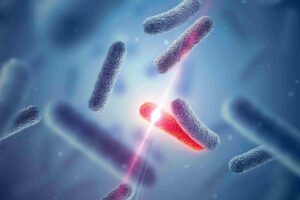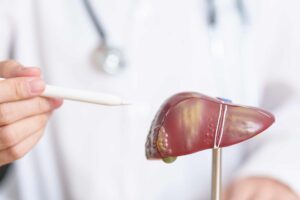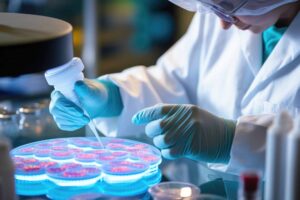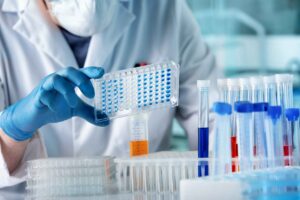• Long-lasting changes
• Antibiotic resistance
What is already known on this topic
During childbirth, 20-30% of women receive antibiotics to prevent their infants from developing sepsis—a life-threatening complication of a bacterial infection, and 2-5% of newborns receive antibiotics due to suspected sepsis.What this research adds
Researchers have found that the antibiotics given to the mother during childbirth alters the infants’ gut microbiota as much as does an intravenous antibiotic administered directly to the child. However, infants exposed directly to antibiotics had a significant overall increase in the abundance of antimicrobial-resistance genes compared with infants who were not exposed to antibiotics and those whose mothers had been given antibiotics.Conclusions
The findings show that antibiotic treatment during childbirth can have a marked and long-term impact on the developing gut microbiota in infants, suggesting that the effects of childbirth antibiotics on newborns’ health should be further evaluated.
Antibiotics given to mothers during childbirth could alter the infants’ gut microbiota, a new study finds. The research, published in Scientific Reports, suggests that the effects of childbirth antibiotics on newborns’ health may be more marked than anticipated.
Birth is a critical time window for bacterial colonization of the gut. Previous studies have shown that Caesarean section reduces the diversity of the gut microbiota, and fetal and early-life exposure to antibiotics have been associated with the development of asthma in children.
However, little is known about how antibiotics given to mothers during childbirth affect the developing gut microbiota of infants.
During childbirth, 20-30% of women receive antibiotics to prevent their infants from developing sepsis—a life-threatening complication of a bacterial infection, and 2-5% of newborns receive antibiotics due to suspected sepsis.
To assess the effect of childbirth antibiotics, Terhi Tapiainen at the University of Oulu and her colleagues collected 426 fecal samples from 149 newborns. Of those, 44 were exposed to the mother’s antibiotic during childbirth, 29 received antibiotic treatment shortly after birth, and 29 were exposed to the antibiotic during and after delivery; 47 infants were not exposed to antibiotics at all.
Long-lasting changes
Newborns exposed to antibiotics had less bacteria belonging to the Bacteroidetes family and more bacteria of the Firmicutes family compared to infants who did not receive antibiotic treatment. These differences persisted until the children were 6 months of age, when the last samples of the study were collected.
Newborns receiving intravenous antibiotics were given a lactobacilli-derived probiotic, which is commonly used to balance the bacterial composition of the digestive tract. But the supplement did not prevent long-term changes in the gut bacterial composition.
Antibiotic resistance
Antibiotics given to the mother during childbirth altered the infants’ gut microbiota as much as did intravenous antibiotic treatment administered directly to the child.
However, infants exposed directly to antibiotics had a significant overall increase in the abundance of antimicrobial-resistance genes compared with infants who were not exposed to antibiotics and those whose mothers had been given antibiotics.
The findings show that antibiotic treatment during childbirth can have a marked and long-term impact on the developing gut microbiota in infants, suggesting that further studies should focus on the effects of childbirth antibiotics on newborns’ gut microbiota.











